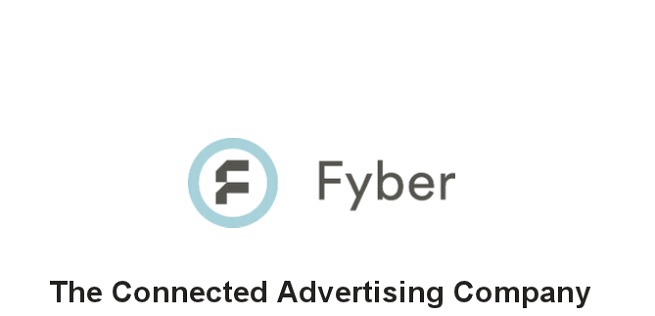Berlin-based SponsorPay, a five-year-old mobile advertising-technology company, is rebranding today as Fyber. The new brand name fits with what it terms as its mission to unify the fragmented mobile ad ecosystem with a single ad-management platform.
Fyber is a mobile supply-side platform that the company claims simplifies advertising for mobile game and app developers. It provides a single dashboard that enables companies like Gree, Glu Mobile, and Cie Games to manage all of their ad networks with a single software development kit. With Fyber, developers can manage all of their ad networks at once. They can cut direct deals with ad networks and optimize their ad spending. The company will also help the mobile monetization industry consolidate so developers can have a one-stop shop for monetizing ads.
176 game devs with 1,100 games and $600M in annual revenue
told us what works best in mobile game monetization
In addition to the rebranding, the company is announcing it has grown to 180 employees and plans to add 70 more by the end of the year, said Fyber cofounder Janis Zech in an interview with VentureBeat.
The core mission is still to integrate, manage and optimize all ad revenue sources through a single, unified platform in the $18 billion mobile ad revenue market. Fyber gives developers access to hundreds of demand sources and ad networks, including Facebook Audience Network, Google AdMob, Apple iAd, AdColony, InMobi, and more. Fyber tries to give developers a transparent view of those ad partners. In the past, developers had to integrate lots of ad networks and build their own user optimization strategy to determine what ad to show to certain users. Fyber unified that.
“The reason for the name change is that SponsorPay was known for being an optimized ad network, and now we are building significant new tools to address long-term problems for developers,” Zech said. “We are excited about this new name and feel like it will reflect our effort to build a more sustainable and predictable revenue stream for app developers in a mobile ecosystem. The problems we are tackling are significantly larger.”
The name reflects the thinking about unification as well as a play on “fiber,” or a mainstay part of the human diet, Zech said. Every developer needs such nutrition, the company says.
In the expansion, Zech said the company will triple the number of employees it has in its San Francisco office. It is staffing up to deal with current business as well as to deal with expansions into new businesses.
“We need to hire to tackle bigger problems, and we have seen significant revenue growth in the past 12 months,” Zech said. “We want to complete the advertising technology stack.”
“The rebrand to Fyber is beyond just a new company name. We’ve been enhancing our product offerings over the past eighteen months, empowering our partners to discover and execute smarter ad monetization strategies,” said Fyber CEO and cofounder Andreas Bodczek in a statement. “It’s our mission to unify the fragmented mobile advertising ecosystem and deliver pain-free experiences that grow our partners’ revenue. Rebranding as Fyber is a natural evolution for our company as we work to define the future of connected advertising.”
Over time, Fyber plans to offer more features and services that will help consolidate the industry.
“We don’t support banner ads today, as an example,” Zech said. “We will support them in the future. They don’t work well in games now, but other kinds of apps use them.”
Fyber reaches about 100 million users a month today, and it works with thousands of mobile developers and game makers. In the past quarter, the company saw a 250 percent increase in mediated revenue, and a 63 percent growth in new integrations.
“In this constantly evolving market,we are always looking to work with partners who offer tools that can help take our ad monetization strategies to the next level,” says Alex Rosen, the vice president of product at Gree International. “Fyber has tackled this issue head-on and their platform unifies the tools that a publisher needs to be successful. We look forward to seeing what the team at Fyber comes up with next.”
SponsorPay was founded in 2009 with a focus on ads for browser-based games and Facebook games. Three years ago, it pivoted to mobile. And in the past couple of years, it has focused on the mobile supply-side platform.
“We’ve got a lot of new products coming in the next months,” Zech said.
VentureBeat's mission is to be a digital town square for technical decision-makers to gain knowledge about transformative enterprise technology and transact. Learn More

